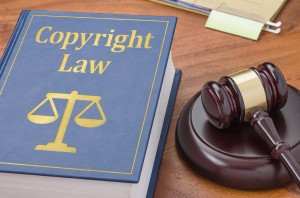All Rights Reserved, A Copyright Relic
This language is no longer necessary for copyright. And yet, it persists.
 It’s not uncommon to come across a document, pamphlet, or other resource with the words “All Rights Reserved” stamped across the bottom. But what do these words mean exactly? What purpose do they serve? Does the author think it’s necessary to use in order to retain his copyright? Is it intended to prohibit all further uses?
It’s not uncommon to come across a document, pamphlet, or other resource with the words “All Rights Reserved” stamped across the bottom. But what do these words mean exactly? What purpose do they serve? Does the author think it’s necessary to use in order to retain his copyright? Is it intended to prohibit all further uses?
PSA: The phrase “All Rights Reserved” isn’t necessary today, but it does have historical origins.
In order to understand why “All Rights Reserved” isn’t legally necessary for copyright protection, it’s important to remember that the Berne Convention for the Protection of Literary and Artistic Works — which has 176 contracting parties — did away with formalities. The Berne Convention, which sets minimum standards for protections, provides automatic copyright protection — that is, copyright exists from the moment of creation and is not dependent on registration or notice. While formalities, like registration, might still be required in order to obtain certain remedies (for example, statutory damages in the United States), the existence of copyright is not dependent on such formalities. While notice is no longer required for works created today, it can still serve a useful purpose, for example, to provide information to users that the work is indeed under copyright protection and provide evidence in a copyright infringement case. “All Rights Reserved,” however, is more of an historical remnant.

Is The Future Of Law Distributed? Lessons From The Tech Adoption Curve
This language stems from the Buenos Aires Convention, which recognized copyright protections for works from other signatory countries, provided that a rights reservation statement appeared on the work. Because all members of the Buenos Aires Convention later joined the Berne Convention, this language is no longer necessary. And yet, it persists.
Some individuals indeed think that because they’ve seen it before, they need it to retain copyright. We’ve already established that formalities, such as notices, aren’t required anymore. Even if the author wants to acknowledge his copyright, a simple “Copyright 2018” would suffice and rights reservation should be assumed, though some authors provide “All Rights Reserved” as an explicit warning.
Unfortunately, I’ve seen instances where some people think that with this statement, they can prohibit all uses with an “All Rights Reserved” notice. I’ve seen this statement alongside another sentence, “Any reproduction is strictly prohibited.” Of course, this idea ignores fundamental user rights, such as fair use. While, yes, copyright grants a bundle of rights, you can’t prohibit someone from exercising their own rights. The right of reproduction granted under copyright law is not absolute, and quotations and criticisms that may require the reproduction of some (or even all) of the copyrighted work may be permissible. You can’t grant yourself more rights than you actually have just by slapping the statement “All Rights Reserved” to your work.
Frustratingly, I’ve also come across “All Rights Reserved” followed by, “Permission is granted, free of charge, to use this work…” which seems completely contradictory. At least in this instance, there’s a simple solution: use a Creative Commons (CC) license (which I’ve talked about in the context of finding images you can use online). Creative Commons provides a menu of choices from a CC-0 license (a public domain license, in which no rights are reserved), to CC-BY (the author retains copyright, but users are free to use it as long as they provide attribution) to CC-BY-NC-ND (requiring users to provide attribution and prohibiting commercial uses or derivatives) to several others in between. Instead of the traditional copyright notice followed by “All Rights Reserved,” I’ve seen a number of works that say something like, “Copyright 2018. Some Rights Reserved” followed by the specific CC license.
Sponsored

Legal AI: 3 Steps Law Firms Should Take Now

The Business Case For AI At Your Law Firm


Navigating Financial Success by Avoiding Common Pitfalls and Maximizing Firm Performance

Legal AI: 3 Steps Law Firms Should Take Now
Krista L. Cox is a policy attorney who has spent her career working for non-profit organizations and associations. She has expertise in copyright, patent, and intellectual property enforcement law, as well as international trade. She currently works for a non-profit member association advocating for balanced copyright. You can reach her at kristay@gmail.com.
Sponsored

Early Adopters Of Legal AI Gaining Competitive Edge In Marketplace








